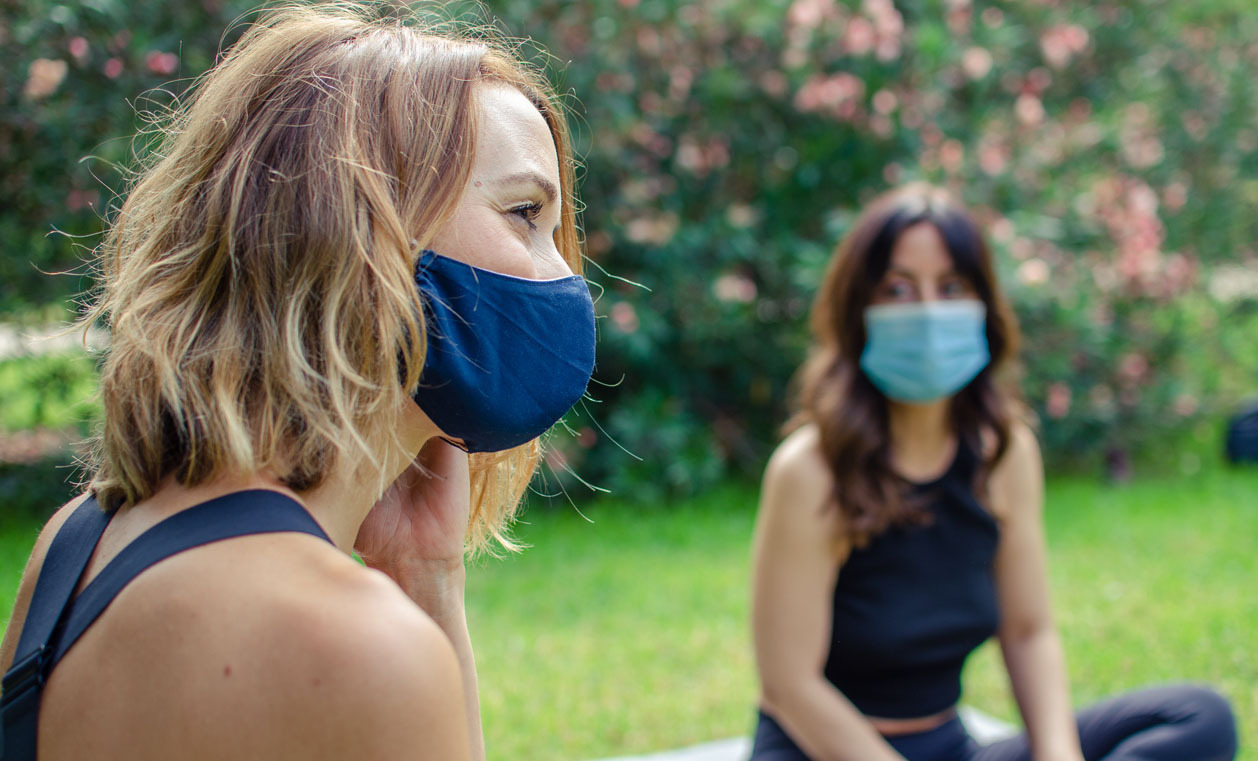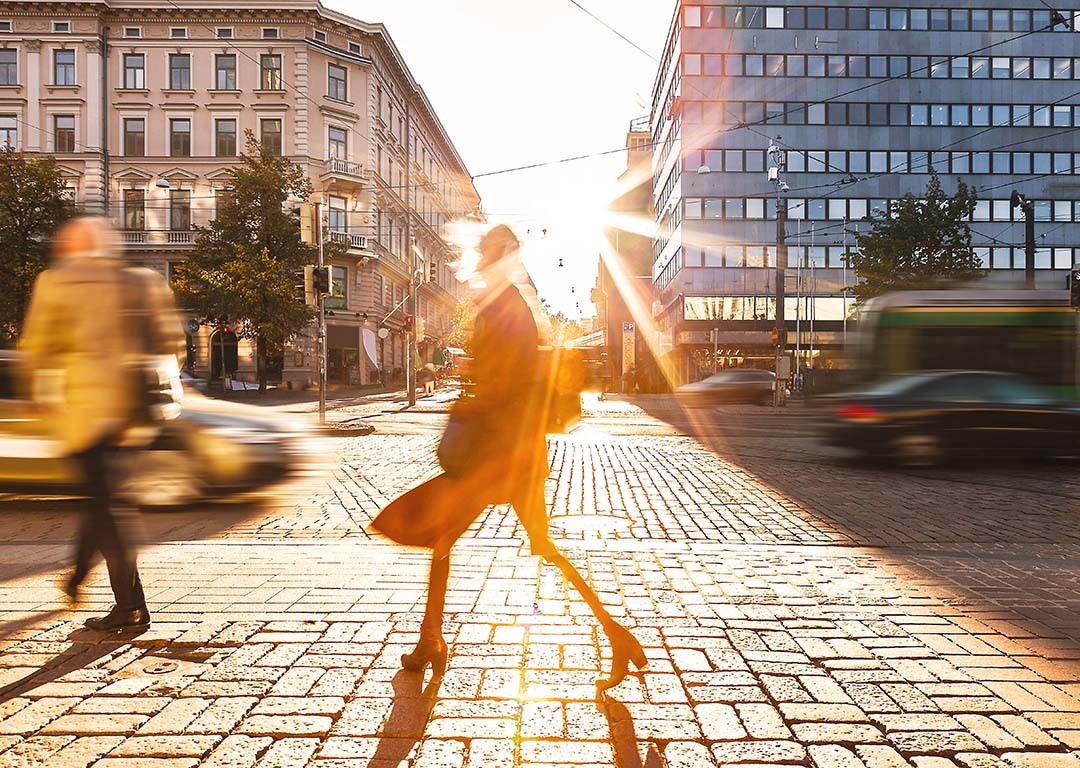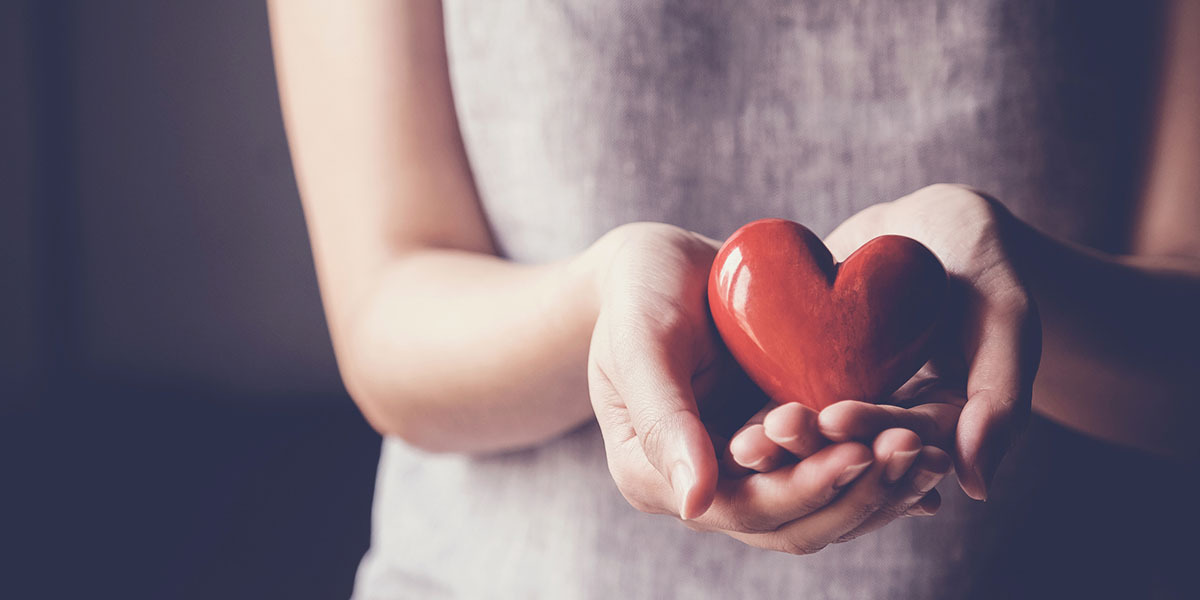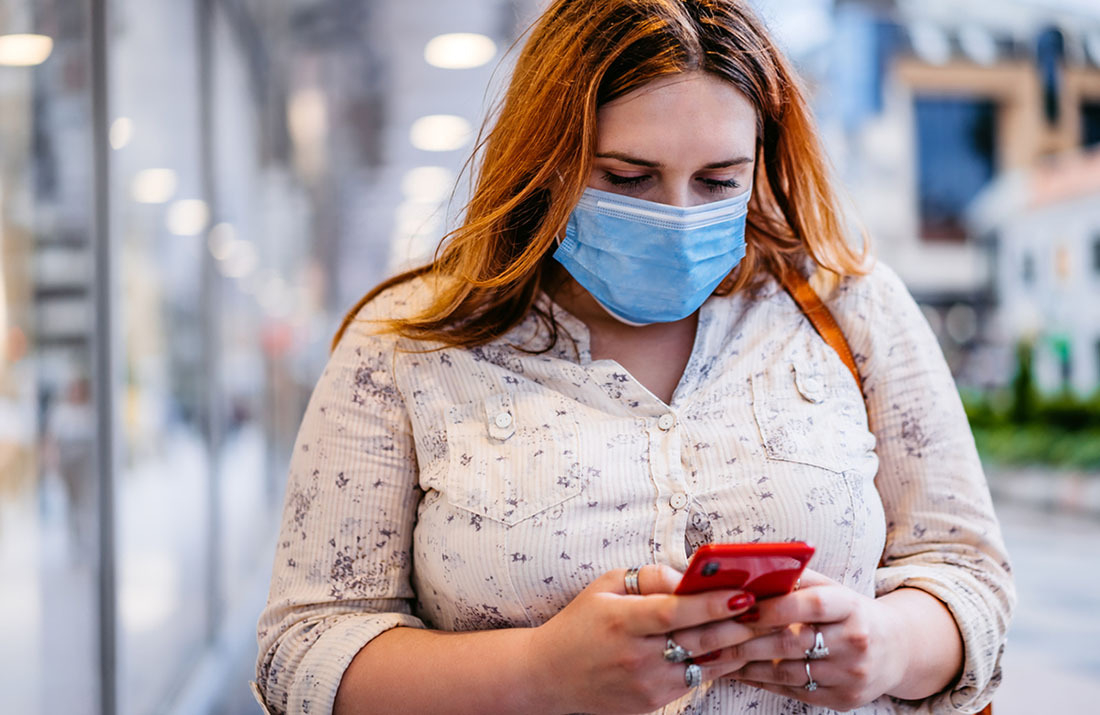After lockdown, while some may be flinging off their masks and piling into pubs, many of us still feel cautious. We may have arranged to meet with those we love or organised a shopping trip and feel happy about it on the surface. Meanwhile, we may also be experiencing things like:
Psychologists have come up with a word for it – re-entry anxiety.
We probably all felt some degree of anxiety as the scale of Covid-19 emerged. Even though it made sense, many of us struggled to allow ourselves these feelings because someone always had it worse.
Now, in reverse as we prepare to emerge from our burrows, we admonish ourselves: “I should feel happy! What’s wrong with me?”
But we humans are not that simple. We don’t have an on-off switch. We have spent a year learning avoidant, safeguarding behaviours and are now pretty good at it. It may take just as long to re-learn to reconnect in a way that is safe and realistic.

For now, this is all new, so we don’t know what we think. To give it a name – re-entry anxiety – both normalises it, but also pathologizes. Studies show that the word anxiety can make us anxious. We don’t all have an anxiety disorder but we are going through a period of adjustment and change, and our bodies react as they do to most changes, with instinctive fight or flight responses. It’s self-protective, just sometimes excessively so.
In many ways, it is good to remain careful and wary – we are still in a pandemic. We need to recognise and accept that we are experiencing these feelings of adjustment and give ourselves time to adapt.
Here are some things you may feel going back into the world and some tips and further articles you might want to read.
1. Low self-esteem. From slackening our skin-care regimes to weight gain, nothing really mattered when we were only seen as a fuzzy zoom image from the neck up. But now, as you prepare to head out into the world, the old critical voice pipes up.
Be kind. Turn down that inner critic. Cultivate your kind inner voice right now. Practice talking to yourself like a wise friend, not a Mean Girl. When meeting friends, you won’t be checking out their love handles – you just want to give them a figurative big hug and ask how they feel. Do the same to yourself.
Read: How to be kind to yourself and Body Confidence
2. Overwhelmed. Being in a crowded city street or having a conversation with more than one person can feel initially feel like too much to take in. You have been used to seeing very few people and having minimal stimulants for a while so your filters may be switched off.
Practice mindful focusing. Rather than allowing information to flood in, consciously choose where you focus your attention, whether studying a building or tree ahead of you or listening to one person speak at a time. Come May 17, you can meet a couple of friends somewhere safe and peaceful – perhaps even a spa...
Read: How to survive social distancing and 10 best outdoor spas

3. Feeling unsafe. Stepping full-body into a crowded world can feel quite vulnerable at first. It will pass when you settle your fight-or-flight responses. Body-proximity can activate something psychologists call ‘mutual regulation’, as well as the release of the bonding hormone oxytocin.
Ground yourself with breaths, or a stone you carry in your pocket. Look around calmly. Remember that this past year has also been about acts of human kindness and positive change, too. Can you see the good in people?
Read: What is mindfulness and 5 Ways to keep Calm in the City
4. Worried about your social skills. You might experience a restless night before reconnecting with people, especially returning to work rather than meeting friends or family. This is to be expected. Your mind might suddenly be awake at 3am finding all the negative social experiences it can to explain the feeling. Now you’re worried about looking tired and not being able to form sentences…
Take it slow. Reconnect one person at a time. Go for a walk with a friend; then two friends. Pick people you can share these feelings with. Laugh about how crazy it all is and share what you may have learned about yourself. Work-social you may be different to friend-social you – after a year in sweats you may need to remember where you put your Professional Self. You can dress the part, but it’s unlikely anyone will expect you to be 100 percent office ready on day one. Simply observe, be mindful and notice how others are coping.
Read: Good Relationships

5. Feeling introverted. If you were introverted before lockdown, you might have realised you don’t want to rush back into a busy, social schedule.
That’s okay. Carry what you have learned about yourself into your new post-lockdown life. Say no to things you don’t want to do: prioritise the people and things you care about. Discuss the option of home working with your boss if it makes sense – if not, look for a new way of working that suits your personality.
Read: Why the spa spies love silence and quietrev.com
The takeaway from all of this is that all these feelings are okay and to be expected. Some feelings are stronger than others. They all boil down to the same thing – we still haven’t got our heads around what has happened or what is about to happen.
It’s not the feelings that cause us problems, but our response to them, our interpretations. If we can keep an open mind, rather than believe our automatic negative responses to be true; if we can learn to relax and soothe ourselves and not expect too much, too soon, we will get through this strange time, together.

Serene Spy
21st April 2021
Spy Likes:
Attentive friendly staff, personalised treatments, imaginative spa food menu and spas that look after their therapists’ wellbeing too.
Spy Dislikes:
Changing rooms and showers that aren't spotless, tatty towels and robes and having to get dressed for lunch.
